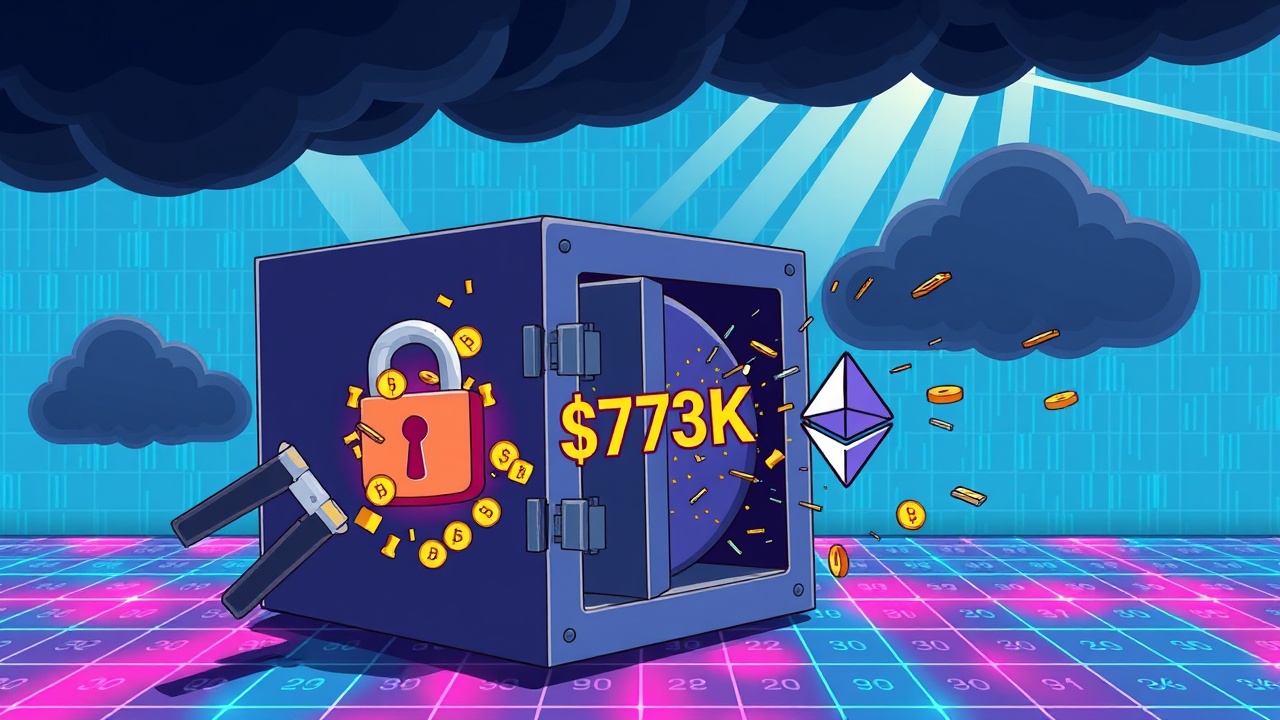Security Incident at HyperDrive
The HyperDrive decentralized finance (DeFi) protocol has recently encountered a serious security incident, resulting in the loss of approximately $773,000. This exploit impacted two specific accounts within its Treasury Bill market, where the stolen assets were subsequently transferred across blockchain networks, notably BNB Chain and Ethereum, via a bridging mechanism. The vulnerability was traced back to the use of Theo Network’s thBILL tokens as collateral, prompting HyperDrive to halt all market activities and user withdrawals.
Recent Breaches in the Hyperliquid Ecosystem
This incident represents the second significant breach in the Hyperliquid ecosystem within a short span of 72 hours. Prior to this, a massive $3.6 million was taken during the HyperVault rug pull, an event where developers vanished following the deletion of their online presence. Such back-to-back attacks have raised alarms about the underlying security measures in place for projects within this decentralized exchange framework.
Details of the Exploit
According to security investigations conducted by CertiK, the exploit capitalized on a crucial flaw in the router contract that allowed unauthorized function calls. This led to the extraction of 672,934 USDT0 and 110,244 thBILL tokens. The funds were notably divided post-attack, with a significant portion—around $494,000—transferred to Ethereum and the remainder of about $279,000 routed to BNB Chain before consolidating at a single wallet.
HyperDrive officials provided clarification that the breach was confined to the Primary USDT0 Market and the Treasury USDT Market, affirming that their native HYPED token remained unaffected. In response to the exploit, the HyperDrive team has enlisted security and forensic specialists to fully investigate the breach and explore options for compensating those impacted.
Nature of the Attack
The systematic nature of the attack, which involved the attacker repeatedly exploiting vulnerabilities within the router contract, indicates a sophisticated understanding of the protocol’s operational framework. Security analysts have pointed out that such an approach reveals an in-depth knowledge of HyperDrive’s smart contract mechanics.
In a bid to recover the stolen funds, the HyperDrive team made an on-chain appeal to the attacker, offering a 10% bounty for the return of the misappropriated assets. To mitigate the risk of further exploits while conducting a comprehensive investigation, the team suspended all trading and withdrawal functionalities.
Wider Implications and Challenges
The situation is exacerbated by the recent hacking events impacting the wider Hyperliquid ecosystem. Just two days earlier, the devastating HyperVault incident raised significant concerns after a sizeable amount of capital was lost, including prior warnings from the community regarding questionable audit claims linked to that project. Additional historical security incidents include a March event involving the manipulation of the JELLY token, which resulted in a disruption costing Hyperliquid’s vault around $13.5 million due to artificial pricing techniques.
Emerging Competitors and Market Dynamics
Amidst this turmoil, the burgeoning ASTER DEX has emerged, presenting a competitive challenge to Hyperliquid by processing over $13 billion in daily trading volume. Recent developments have also seen ASTER DEX form an alliance with Trust Wallet, potentially supplying over 100 million users with easy access to trading futures contracts.
Former HYPE position holder, Arthur Hayes, had previously liquidated his holdings for a profit of $823,000, expressing concerns over substantial token unlocks valued at $11.9 billion set to commence on November 29. After observing a 23% decline in the token’s value to $35.50 in a week, he surveyed his followers regarding the possibility of re-investing. Despite ongoing challenges related to security, Hyperliquid successfully launched its own USDH stablecoin on September 24, amassing $2.2 million in transaction volume shortly after its debut.




